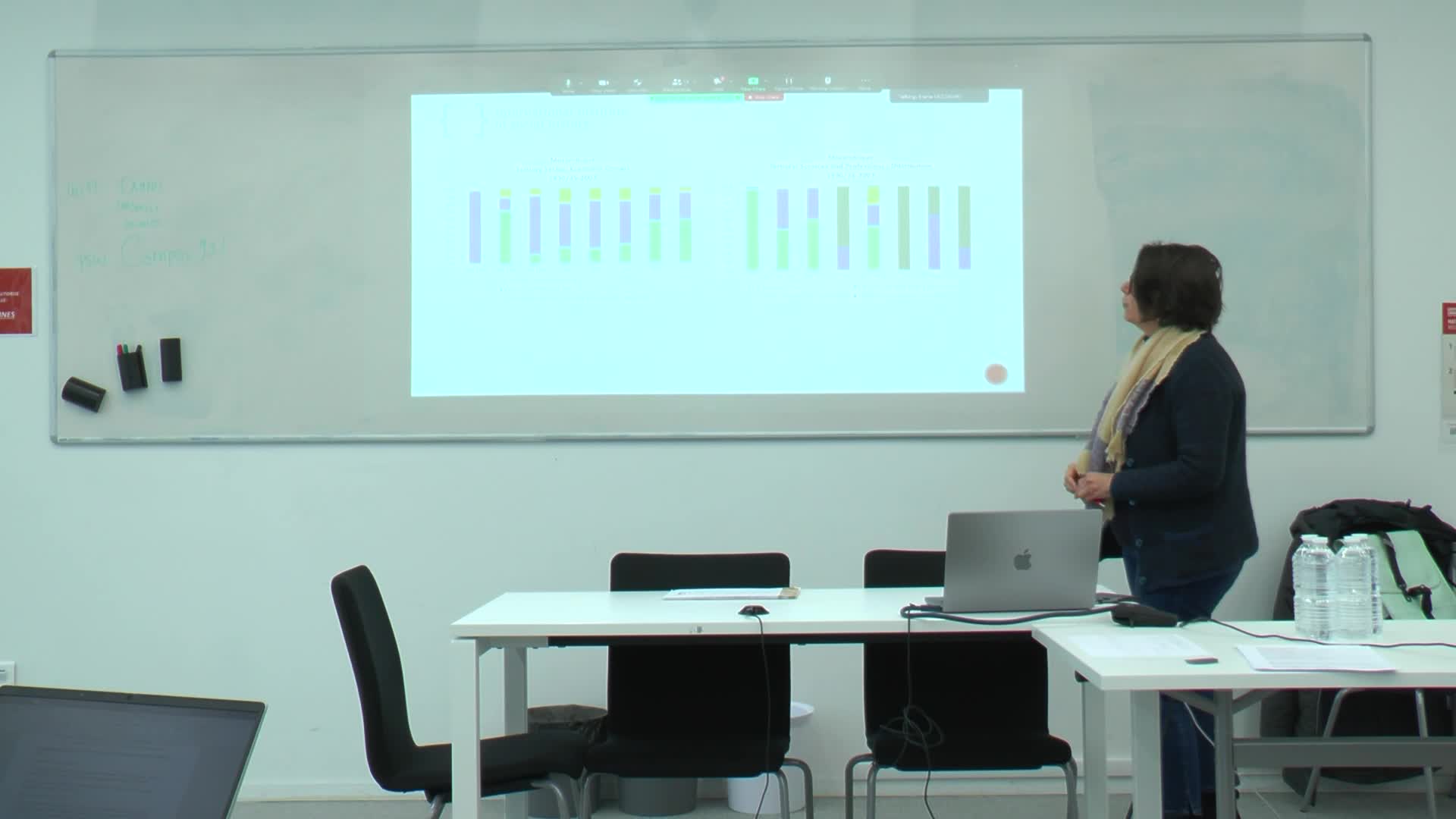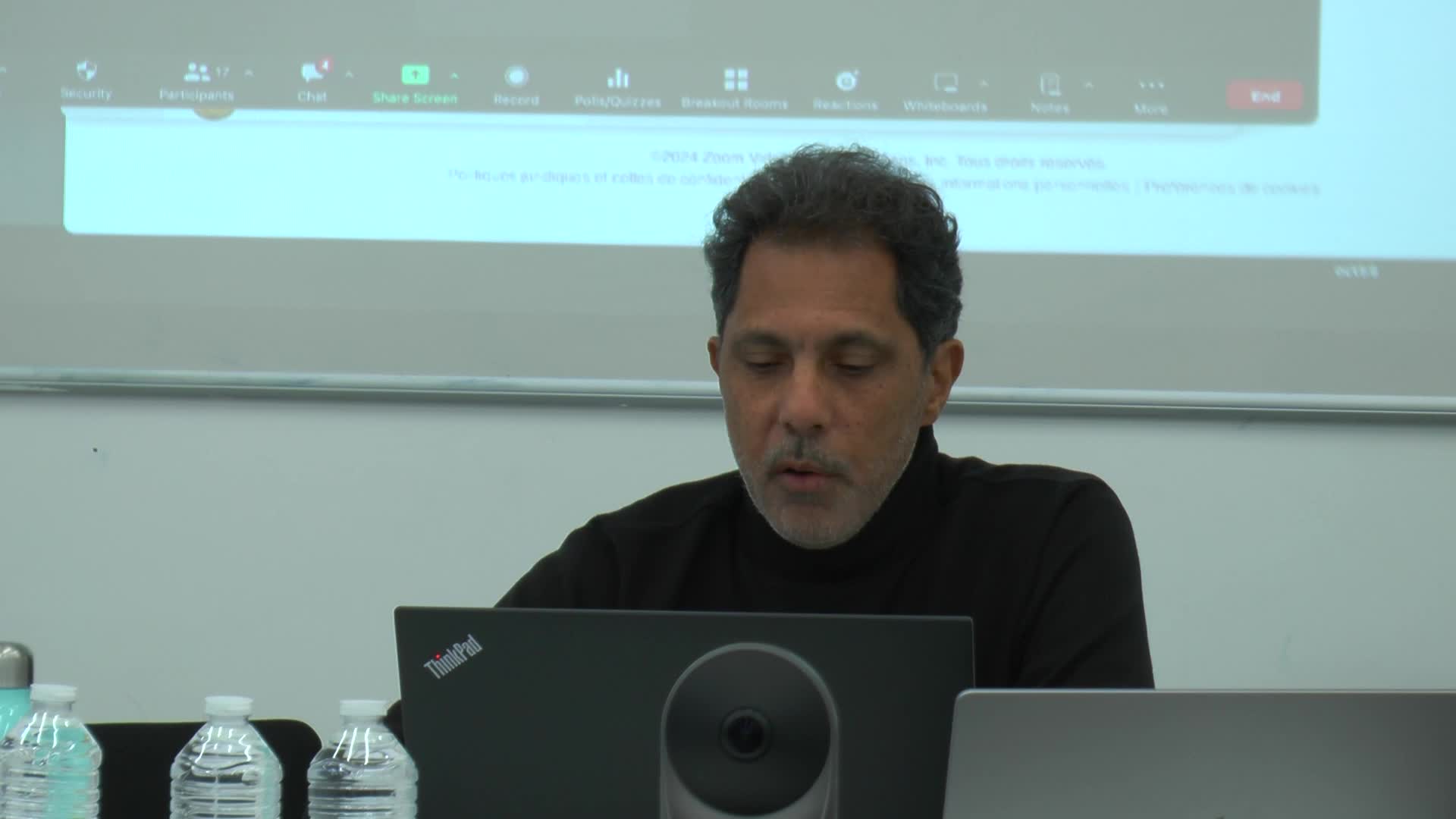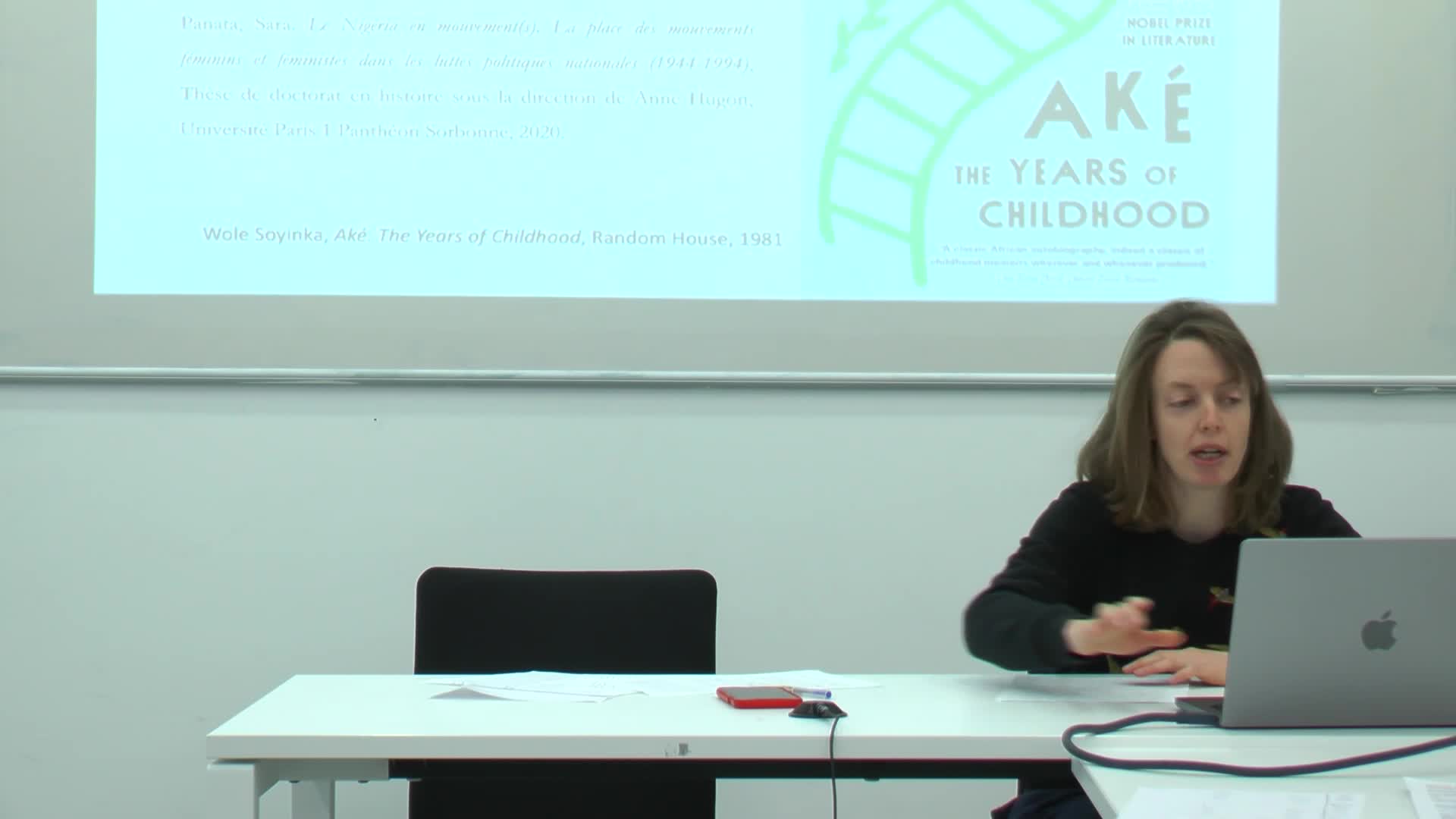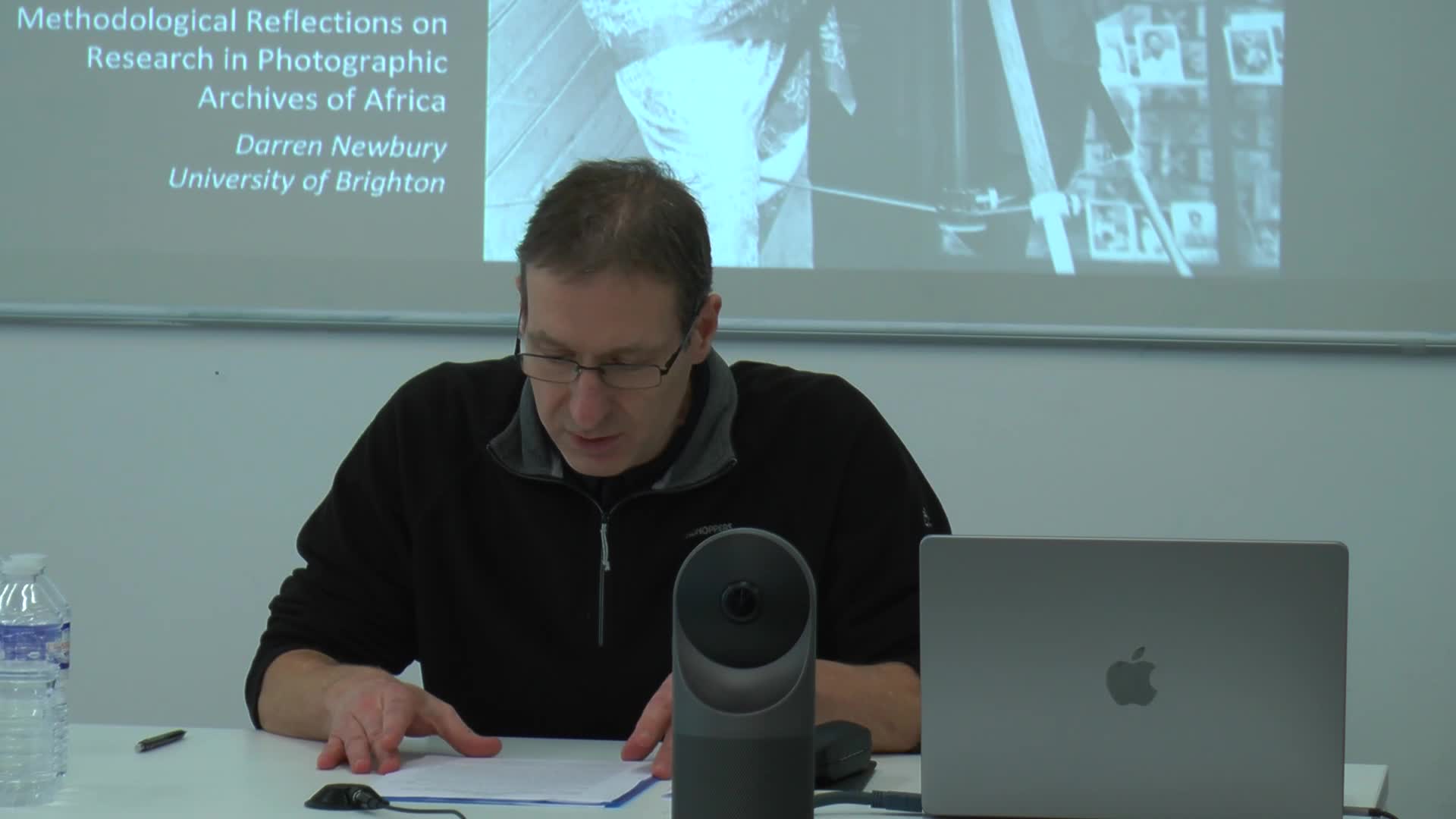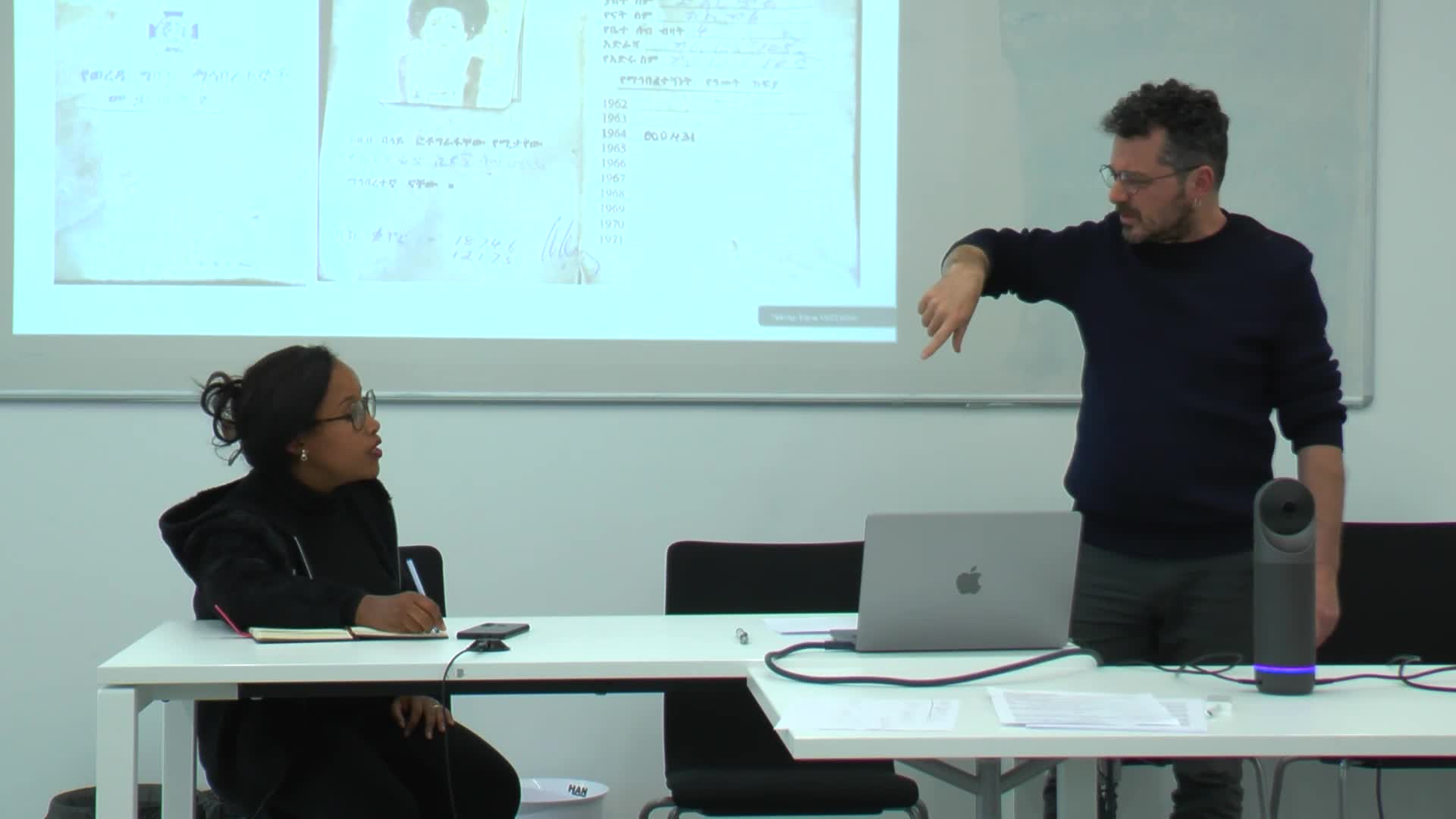Notice
Creative Methodologies - Writing the stories of working women from popular classes in African urban milieux, 1920 - 1970 - Partie 4
- document 1 document 2 document 3
- niveau 1 niveau 2 niveau 3
Descriptif
Salvatory S. Nyanto, University of Dar es Salaam
Women, Brewing and Urban Professionalism in Twentieth-Century Tabora, Western Tanzania, 1930-1970
Studies about women and slavery in Africa have attracted voluminous scholarly attention. Nevertheless, attempts into which women used brewing to forge an independent profession in the urban setting has been limited. This paper centers on oral and documentary sources to show how women used brewing as an alternative path to escape their socio-economic predicaments including the shackles of slavery. Not only was brewing “a highly profitable undertaking” for women but it also made them become the “elite among the servile.” In 1963, in response to legal and tax requisites, women formed an Association of African Women Brewers (Umoja wa Wanawake Wapika Pombe) with its headquarters in Tabora which augmented their work as “urban professionals” because it spearheaded and coordinated the demands of women across the western province. In the end, the formation of an association of women’s brewers consolidated the public.
Alma Simba, EHESS
Women’s Resistance and Informal Labour in Dar es Salaam, 1950-1985 - PhD ERC Research Project
This project explores street vending performed by women in the urban centre of Dar es Salaam from 1950-1985. The project takes street vending as a multi-faceted “informal” profession ranging from selling food to city dwellers to selling vegetables and wares on the roadside. The project will analyse the perception of the colonial state on urban women’s labour in relation to early conceptualisations about the city planning of Dar es Salaam and its growth in the post WWII era. It will delve into how the archive - as a product of the colonial state - has upheld assumptions of women’s labour. The work seeks to offer alternatives to studies on women’s labor through photographs, oral histories, personal testimony, and art forms. The silences of the archive are not limited to the colonial period but to the independence and post-colonial period too. Official documents on the types of labour women do, and how they contributed to the independence movement, will also be explored in this project. The work argues that street vending was - and remains - a profession to which women made a livelihood for themselves, resisted colonial barriers, subverted orders and conceptualisations of city structures and performed agency. The work believes that women’s history requires a feminist, de-colonial, materialist approach in which archives can be used to offer statist insights on women’s labour and its treatment throughout history while also adopting a subversive approach where women and their personal agency is centred.
Daniel Worku Kebede, EHESS
A History of Women in the Informal Sectors in Addis Ababa from 1886 to 1991: The Case of Weavers and Potters
In the historiography of Ethiopia, women have received little attention. This lack of attention to women is a significant oversight, even compared with other African countries. The few existing studies on women are mainly focused on popular and notable women rather than ordinary women. Such ordinary women who engaged in weaving, pottery, and other informal economic activities had a significant contribution to the socio-economic growth of Addis Ababa from the early foundation period. Despite their major contribution in the socio-economic sector, they retained the bottom ladder in the social hierarchy. Gradually, social marginalization was followed by spatial segregation, leading to the creation of different pockets of residential places in Addis Ababa like Shama and Shakla Safar, the weavers and potters quarters, respectively. While marginalization was common to both sexes, the situation for women was quite different. They must bear the burden both in the public and domestic spheres. As a result, this research proposal is motivated to examine the complex and interwoven experiences that women endured in the capital as a result of their sex, employment, and identity. In addition, the study focuses on national policies and programs in an effort to change the situation of this social classless society and to end societal marginalization over time. The proposed study intends to shed light on urban women workers in the informal sector, with a focus on potters and weavers in Addis Ababa from its foundation in 1886 to the fall of the Derg regime in 1991. Methodologically, it aims to depict more stories and experiences of regular women in a bottom-up approach and present women’s history from a women's perspective by weaving oral sources together with different threads of other valuable written sources. To fill the theoretical gap, the study will follow an interdisciplinary approach to utilize the findings, insights, theories, hypotheses, and other analytical tools generated by scholars from other disciplines to reconstruct an inclusive women’s history from below.
Juliet Tiwaah Adu Bohaen, EHESS
Wayside Female Dressmakers: A Historical Analysis of Cultural, Economic and Social Impacts of Dressmaking in the Gold Coast and Ghana, 1919-1970
While dressmaking was one of the major economic activities both men and women engaged in for livelihood in pre-colonial Ghana, it turned out to be one of the popular urban female professions in colonial Ghana. Among other reasons, the male dominated colonial economy and the focus of missionary and British colonial education for girls in the Gold Coast on home making seemed to have posed dressmaking as feminine profession. Despite the type of training (formal and informal) many female dressmakers had, there existed different work ethos, subjectivities, marginalized societal perceptions and perceptions on female dressmakers. Relying heavily on oral history, archival data and other evidence-based materials, this proposal seeks to provide a historical account on how dressmaking became a popular female urban profession and how it has transformed and impacted women’s lives in both colonial and post-colonial times. Taking into consideration colonialism, urbanization, technological advancement, the emergence of women movements and nationalism, this paper seeks to explore and provide a historical analysis of the general impacts, societal perceptions, system of pricing, work ethos and professionalism of female dressmakers from 1919 to 1970. This will help provide a historical study on the untold achievements of most urban female professions in the Gold Coast and provide a framework within which the contributions of women would be integrated into the economic history of Ghana.
Intervention / Responsable scientifique
Thème
Documentation
Dans la même collection
-
Creative Methodologies - Writing the stories of working women from popular classes in African urban…
Meier zu SelhausenFelixSilvaFilipa Ribeiro daGibbsTimothyCristofaroDomenicoÉcrire les histoires de femmes travailleuses issues des classes populaires dans les milieux urbains africains, 1920 - 1970 - Partie 3
-
Creative Methodologies - Writing the stories of working women from popular classes in African urban…
NieftagodienNoorDarkwahAkosua K.Écrire les histoires de femmes travailleuses issues des classes populaires dans les milieux urbains africains, 1920 - 1970 - Partie 1
-
Creative Methodologies - Writing the stories of working women from popular classes in African urban…
HunterEmmaBerthoElaraSharkeyHeather JaneSharifMariamÉcrire les histoires de femmes travailleuses issues des classes populaires dans les milieux urbains africains, 1920 - 1970 - Partie 5
-
Creative Methodologies - Writing the stories of working women from popular classes in African urban…
NewburyDarrenHeuvelDanielle van denÉcrire les histoires de femmes travailleuses issues des classes populaires dans les milieux urbains africains, 1920 - 1970 - Partie 2
-
Creative Methodologies - Writing the stories of working women from popular classes in African urban…
HugonAnneSahledengilTirsitGuidiPierreVezzadiniElenaÉcrire les histoires de femmes travailleuses issues des classes populaires dans les milieux urbains africains, 1920 - 1970 - Partie 6


